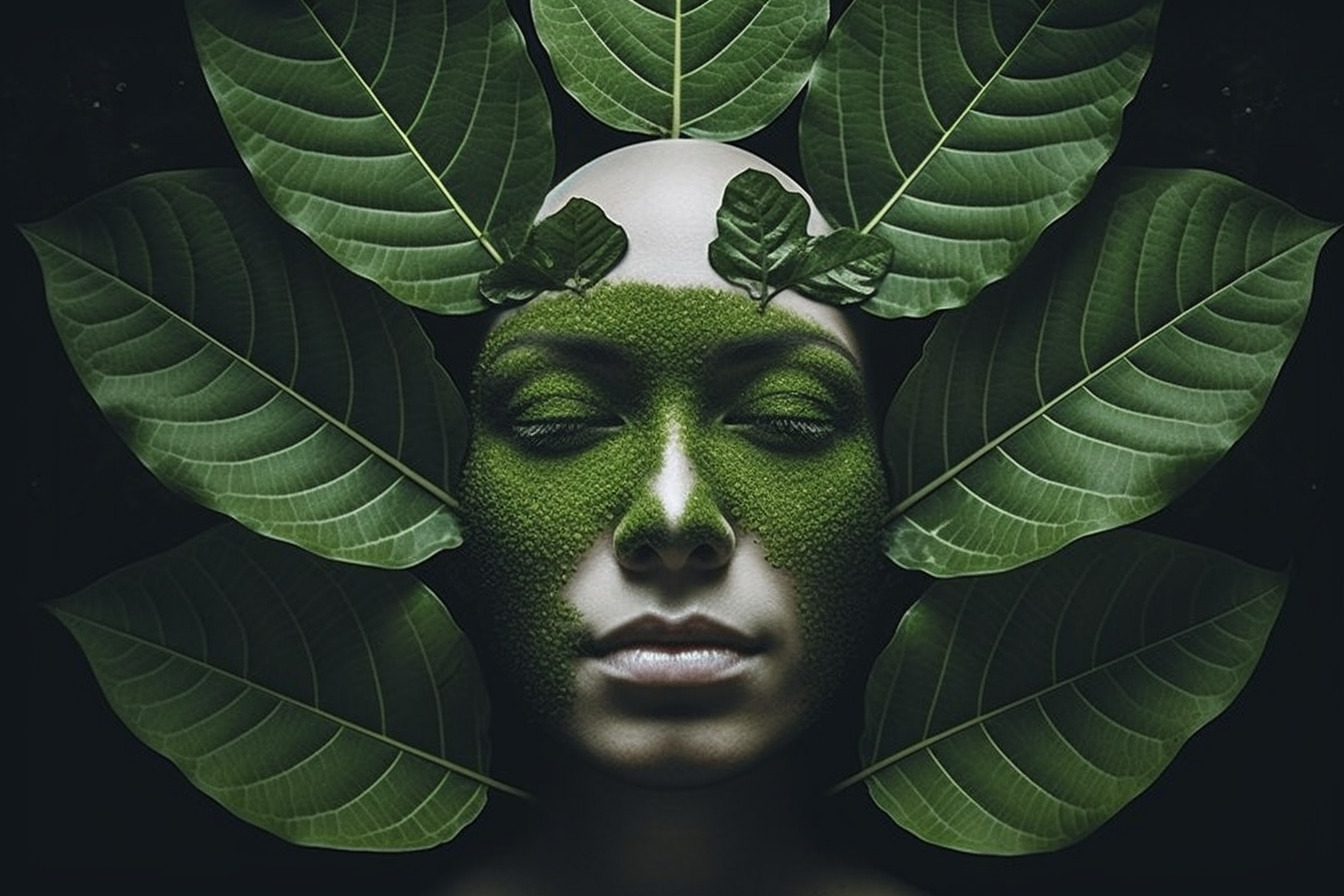Does Kratom Cause Dehydration?

As a kratom expert, I am often asked about the potential side effects of using this powerful plant. One common question that arises is whether or not kratom causes dehydration. While there are many benefits to using kratom, it’s important to understand any potential risks associated with its use.
While some people may experience mild dehydration when taking kratom, it’s generally not considered a significant risk. However, as with any substance that affects hydration levels in the body, users should take steps to stay hydrated and monitor their fluid intake while using kratom.
In this article, we’ll explore the relationship between kratom and hydration so you can make an informed decision about how to safely incorporate this herb into your wellness routine.
Understanding The Effects Of Kratom
As the saying goes, ‘knowledge is power,’ and understanding the effects of kratom can help individuals make informed decisions about its use.
Kratom’s impact on cognition has been a topic of interest among researchers for years. There are reports that low doses of kratom may improve cognitive function, including memory and focus. However, high doses have been known to cause sedation and impairment.
[product_blocks id=”58827″]
Another potential benefit of kratom is chronic pain management. Many individuals who suffer from chronic pain turn to prescription opioids, which come with numerous side effects and risks of addiction. Some studies suggest that kratom may be a natural alternative for managing pain without those harmful side effects.
As research continues in this area, it is important to note that more investigation is needed before making any definitive conclusions about the effectiveness or safety of using kratom as a pain management tool.
Fluid Balance And Hydration In The Body
Kratom is a plant that has been used traditionally in Southeast Asia for various medicinal purposes. The leaves of the kratom tree have been known to cause diuretic effects, which can lead to dehydration in some individuals. This means that it increases urine production and subsequently causes the body to lose more water than usual.
To counteract this effect, it’s important to maintain adequate fluid balance by drinking plenty of water throughout the day. It’s recommended that adults consume at least eight glasses (64 ounces) of water daily, and even more if you are engaging in physical activity or live in hot climates.
Additionally, electrolyte balance should also be maintained through consumption of foods rich in minerals such as potassium, magnesium, sodium, and calcium.
Proper hydration is crucial when using kratom.
Drinking at least 8 cups of water per day helps maintain fluid balance.
Consuming foods rich in minerals helps regulate electrolyte levels.
Overall, while kratom may cause dehydration due to its diuretic effects, maintaining proper water intake and electrolyte balance can help mitigate these risks. It’s important to be aware of your body’s needs and make sure you stay hydrated while using kratom or any other substance with similar effects on fluid balance.
By taking care of yourself in this way, you can ensure a safe and healthy experience with kratom.
Potential Risks Of Dehydration With Kratom Use
Like any other substance, kratom use can have its potential risks. One of these is dehydration. Dehydration occurs when the body loses more fluids than it takes in, and this can be caused by a number of factors such as sweating, vomiting or diarrhea – all of which may occur with kratom consumption.
To prevent dehydration while using kratom, hydration strategies should be implemented to help replenish lost fluids. This includes drinking plenty of water before, during and after consuming kratom. Additionally, taking breaks in between doses to drink fluids will also aid in rehydration.
It’s important to note that alcohol and caffeine intake should be limited as they can contribute to dehydration. By following these simple dehydration prevention tips, individuals who choose to consume kratom can minimize their risk of experiencing dehydration-related issues.
Tips For Staying Hydrated While Taking Kratom
As a kratom expert, I have studied the effects of this natural supplement on the human body. One common concern among those who take kratom is whether it causes dehydration. While there isn’t any direct evidence that suggests kratom dehydrates you, it’s important to stay hydrated while taking it.
Hydration strategies are essential when using kratom as they help reduce the risk of developing side effects such as headaches and constipation. It is recommended that individuals consume at least eight glasses of water every day when taking Kratom. This helps keep your body well-hydrated and prevents adverse symptoms from occurring.
Other fluids such as coconut water or sports drinks can also be used for added electrolytes and hydration benefits. By staying adequately hydrated, you ensure that your body remains healthy and balanced even when consuming kratom regularly.
Conclusion: Making Informed Decisions About Kratom Use
While staying hydrated is important when taking kratom, many people wonder if the herb itself can cause dehydration. This is a valid concern, especially considering that some of the side effects of using kratom include dry mouth and increased urination.
However, there is no evidence to suggest that kratom itself causes dehydration. In fact, drinking water while using kratom may actually help mitigate some of its potential side effects.
Of course, it’s still important to stay hydrated throughout the day regardless of whether or not you’re using kratom.
As with any substance, there are both benefits and risks associated with using kratom. While more research needs to be done before we fully understand all of its effects on the body, current studies indicate that it may have potential as an alternative pain medication and could even aid in addiction recovery.
However, there are also concerns about its addictive potential and interactions with other medications.
Ultimately, it’s up to each individual to weigh these factors and make informed decisions about their use of kratom.
Frequently Asked Questions
Can Kratom Cause Dry Mouth?
Kratom use has been known to cause dry mouth in some individuals. This is a common side effect of many substances, including prescription medications and recreational drugs.
[product_blocks id=”58827″]
Fortunately, there are potential solutions and prevention methods for this discomfort. Drinking plenty of water and staying hydrated can help alleviate symptoms. Using sugar-free gum or lozenges can also stimulate saliva production and provide relief. Additionally, avoiding alcohol, caffeine, and tobacco can reduce the severity of dry mouth caused by kratom use.
As with any substance, it’s important to be aware of the potential side effects and take steps to manage them if they occur.
Is It Safe To Mix Kratom With Sports Drinks For Hydration?
Mixing kratom with sports drinks can be a safe and effective way to stay hydrated during physical activity.
Sports drinks provide many benefits, including replenishing electrolytes lost through sweat and providing energy in the form of carbohydrates.
However, there are alternatives to sports drinks that may better suit some individuals’ needs, such as coconut water or homemade electrolyte solutions.
It is important to note that while kratom does not directly cause dehydration, it may have mild diuretic effects which could contribute to fluid loss if hydration is not maintained properly.
As with any supplement or medication, it is best to consult with a healthcare professional before incorporating kratom into your fitness routine.
How Long Does It Take For Dehydration Symptoms To Appear With Kratom Use?
If you’re a regular kratom user, it’s essential to stay hydrated.
Dehydration symptoms can vary depending on the individual and their activity level, but they typically appear within a few hours of use.
To mitigate dehydration risk, we recommend drinking plenty of water before and after consuming kratom.
Additionally, incorporating electrolyte-rich sports drinks or coconut water into your routine can help maintain hydration levels.
It’s also important to avoid alcohol and caffeine as these can dehydrate the body further.
By staying mindful of your fluid intake and recognizing the dehydration symptoms timeline, you can continue to safely enjoy the benefits of kratom without compromising your health.
Are There Any Specific Types Of Kratom That Are More Likely To Cause Dehydration?
Some types of kratom can lead to dehydration, especially if taken in large doses or on a frequent basis. These strains may have effects on digestion, causing more water to be lost through urination or sweating.
It’s important for users to stay hydrated by drinking plenty of fluids throughout the day and taking breaks from using kratom when necessary. Additionally, incorporating hydration strategies such as consuming electrolyte-rich drinks or foods can help prevent dehydration while using kratom.
As a kratom expert or researcher, it’s crucial to educate people about the potential risks associated with certain strains and provide guidance on how to use them safely.
Can Dehydration From Kratom Use Lead To Kidney Damage?
Dehydration is a common side effect of kratom use, and it’s important to manage your hydration levels while using this substance.
If left unchecked, dehydration can lead to kidney damage over time.
[product_blocks id=”58827″]
Proper kidney function relies on adequate hydration, so any prolonged period of dehydration could cause harm.
As such, it’s crucial that individuals who use kratom pay close attention to their hydration management strategies in order to minimize the risk of developing any long-term health issues related to kidney function.
Conclusion
In conclusion, kratom may cause dehydration as a common side effect. Dry mouth is often reported by users and can be an indicator of mild dehydration. It is important to stay hydrated while using this herb to avoid any potential adverse effects on the body.
It is safe to mix kratom with sports drinks for hydration, but it’s best to drink plenty of water throughout the day. Dehydration symptoms can appear within a few hours after taking kratom, so it’s essential to keep fluids close at hand.
Some types of kratom may be more likely to cause dehydration than others due to their potency or dosage. According to recent studies, prolonged dehydration from kratom use could potentially lead to kidney damage in some cases.
This statistic should serve as a warning sign for those who regularly consume high doses of kratom without proper hydration practices. As a responsible user and advocate of this traditional herb, I urge everyone always to prioritize their health and well-being above all else when enjoying the benefits that kratom has to offer.
Greg Walker
Passionate about providing the highest quality Kratom and educating our community on its natural benefits.


